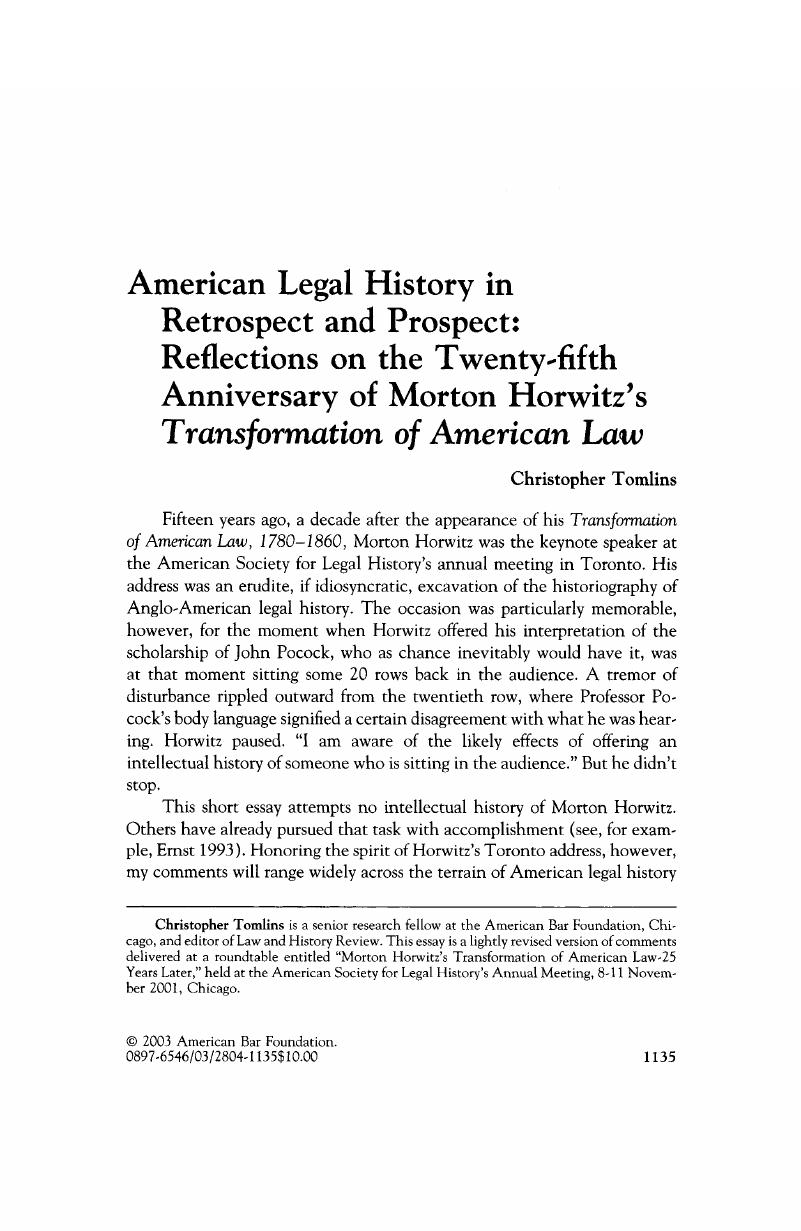Crossref Citations
This article has been cited by the following publications. This list is generated based on data provided by Crossref.
Woeste, Victoria Saker
2003.
Toasting Transformation I.
Law <html_ent glyph="@amp;" ascii="&"/> Social Inquiry,
Vol. 28,
Issue. 4,
p.
1121.



